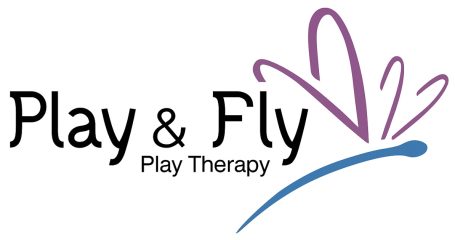
About Me
Hi, I’m Annette, a qualified play therapist dedicated to supporting children through life’s emotional and behavioural challenges. With years of experience working with young people and families, I’ve seen firsthand how powerful play can be in helping children express themselves and grow. I take a compassionate, child-led approach—meeting each child where they are and walking alongside them and their families with care, empathy, and expertise.
Annette Davis Accredited Play Therapist PG Cert, PG Dip
I work peripatetically in primary schools 1:1 and groups sessions in the Greater Manchester Area. I am registered with Adoption Support Fund and welcome both private and children's services referrals.
Our Environment
At Play & Fly, we’ve created a calm and child-centred environment that encourages comfort, creativity, and connection. Our therapy rooms are filled with age-appropriate toys, art materials, and cozy spaces designed to help children feel secure and open up at their own pace. Every detail is carefully considered to support emotional safety and make each visit a positive, reassuring experience.


Our Philosophy
At Play & Fly, we believe that every child has the potential to grow, heal, and thrive when given the right support. Our approach is grounded in the power of play as a natural way for children to express their thoughts and feelings. We meet each child with empathy, patience, and respect—tailoring our work to their individual needs while partnering closely with parents to ensure lasting emotional wellbeing.
Client and Family-Centered Care
We understand that a child’s emotional journey is deeply connected to their family environment. That’s why we take a client and family-centered approach—working not only with the child but also offering guidance, reassurance, and resources for parents and caregivers. You’ll be included every step of the way, ensuring that the care your child receives is compassionate, collaborative, and truly aligned with your family’s needs and values.
Quality and Safety
Your child’s wellbeing is our top priority. At Play & Fly, we adhere to rigorous safety protocols and professional standards to ensure a secure, high-quality therapeutic experience. From safeguarding practices to ongoing staff training and clean, well-maintained facilities, we are dedicated to creating an environment where children can grow and heal with confidence—and where parents can feel fully assured of their child’s safety and care.
Our Excellence
At Play & Fly, we are committed to delivering the highest level of care through expertise, compassion, and continuous improvement. Our therapists are highly trained and passionate about making a real difference in children’s lives. From your first enquiry to ongoing sessions, we strive for excellence in communication, support, and outcomes—ensuring your child receives the thoughtful, personalised care they deserve.
FAQs
What is Play Therapy?
Play therapy utilises a child’s first language of play and metaphor to help explore their inner world.
“toys are children’s words, and play is their language”
It is a developmentally sensitive approach that enables children to re-enact or play out their life experiences to bring about understanding and change. Sometimes children experience problems with behaviour and feelings that cause a disruption in their lives and limit their ability to fulfil their full potential. Play Therapy helps children to understand confusing and upsetting events and feelings they haven’t yet had the opportunity to face.
How does Play Therapy work?
A play therapist is trained in many areas such as child development, trauma and attachment and will communicate with your child through play in a developmentally sensitive manner.
Play therapy facilitates healing through the creation of a therapeutic relationship to allow your child to be seen, heard and accepted as they are. This type of trusting therapeutic environment is crucial to allow your child to feel safe, comfortable and understood.
What will happen in my child’s Play Therapy sessions?
Your child will have access to a large selection of mediums knows as the Tool Kit. This includes craft materials, sand, dressing up, puppets, creative visualisations and stories. A play therapist uses these tools and metaphor to communicate with your child using their natural form of communication and expression in a safe and secure manner to allow your child self-exploration and mastery.
Who can benefit from Play Therapy?
Play therapy is useful for any child that isn’t currently reaching their full potential socially, emotionally, or academically. This can be down to a range of
- Trauma
- Loss/Bereavement
- Behavioural Difficulties
- Bullying
- Abuse
- Anxiety
- Parental Separation
- Emotional Difficulties
- Intrusive Thoughts
- Peer Relationships
What are the proven benefits of Play Therapy?
Giving your child a free space to explore their inner world has been proved to help them;
- Develop problem solving skills
- Learn to experience and express emotions
- Build resilience, confidence and self esteem
- Process trauma
- Develop respect for others and the self
- Cultivate empathy and respect for other
How many sessions will my Child need?
Typically, the length of a play therapy episode is dependent on the initial assessment conversations and Strength and Difficulties Questionnaire scores. Your chosen play therapist will advise you on how many sessions your child will need. However, the number of sessions initially advised is flexible dependant on a review period at 8-10 sessions, here your child’s needs will be discussed and the number of sessions will be revisited to ensure that the episode length is adequate to allow the hope for therapeutic outcomes to be suitably targeted.
A Short-term episode is 12 sessions in length, anything more is considered long term.
Some children respond to short term interventions, however if problems are persistent or have been evident for a long time a longer-term intervention will be required.
Sessions are once a week at the same time on the same day to foster an element of security around the episode. Interruptions and unplanned missed sessions may disrupt the therapeutic process and subsequent progress.
